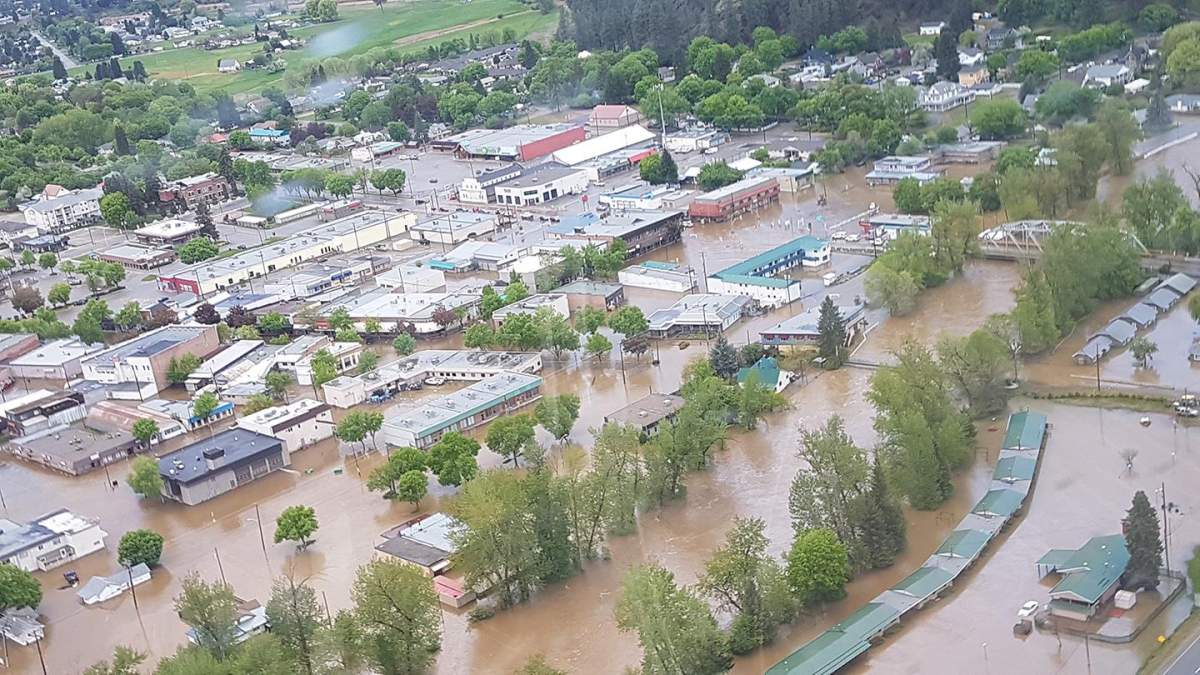The B.C. government has launched a recovery transition program to provide financial support for residents who cannot return to their homes after flooding in Grand Forks last month.

Premier John Horgan said on Wednesday that the program will be around for 90 days and provide up to $2,800 for living expenses.
“There are still a number of homes that are still not able to be occupied,” he said.
“We also have significant infrastructure issues to address with respect to the river. The flyover was quite graphic to see the damage still in place after the water receded.”
The province is partnering with Red Cross to administer the program, the first of its kind in B.C., and work is being done with local governments to implement it as soon as possible.
WATCH HERE: Grand Forks residents fight growing mould problem

“We can’t overstate the impact on communities and families during times of disaster,” Kimberley Nemrava, Canadian Red Cross vice-president for British Columbia and Yukon, said. “With the support of generous British Columbians, and in close collaboration with the government, we are pleased to be able to provide this assistance.”

Get breaking National news
The provincial government is still in the midst of a fund-matching donation program that sees every dollar that British Columbians donate to the Red Cross for Grand Forks matched by the province.
“The community is desperate for help,” Horgan said. “The province is continuing to match dollar-for-dollar any donation made to the Red Cross. If you have a few extra dollars at the end of the month, please think about donating to the Red Cross specifically for the Grand Forks disaster relief fund.”
The money will provide families with financial support for basic needs and prioritize homes that have been assessed as uninhabitable or having major damage.








Comments
Want to discuss? Please read our Commenting Policy first.